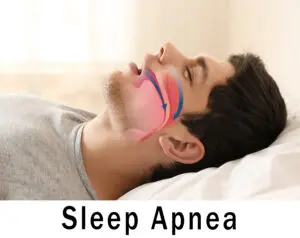Posted at 14:56h
in
sleep apnea

Lack of proper sleep at night can significantly impact your physical, mental, and oral health. Many patients may not be aware that there is an underlying condition causing their lack of sleep. If you find yourself waking up feeling tired, have dry mouth, or have been told that you often snore loudly, these could be signs that you have
obstructive sleep apnea (OSA). The team at
Commonwealth Oral and Facial Surgery in Richmond, VA, may be able to help diagnose and treat this disorder so you can get better rest.
 Lack of proper sleep at night can significantly impact your physical, mental, and oral health. Many patients may not be aware that there is an underlying condition causing their lack of sleep. If you find yourself waking up feeling tired, have dry mouth, or have been told that you often snore loudly, these could be signs that you have obstructive sleep apnea (OSA). The team at Commonwealth Oral and Facial Surgery in Richmond, VA, may be able to help diagnose and treat this disorder so you can get better rest.
Lack of proper sleep at night can significantly impact your physical, mental, and oral health. Many patients may not be aware that there is an underlying condition causing their lack of sleep. If you find yourself waking up feeling tired, have dry mouth, or have been told that you often snore loudly, these could be signs that you have obstructive sleep apnea (OSA). The team at Commonwealth Oral and Facial Surgery in Richmond, VA, may be able to help diagnose and treat this disorder so you can get better rest.


 When you
When you  Do you snore on a regular basis? If so, then this could indicate the presence of a disorder known as
Do you snore on a regular basis? If so, then this could indicate the presence of a disorder known as  When you wake up in the night on a regular basis gasping for air, or if you snore frequently, then you could be experiencing the
When you wake up in the night on a regular basis gasping for air, or if you snore frequently, then you could be experiencing the